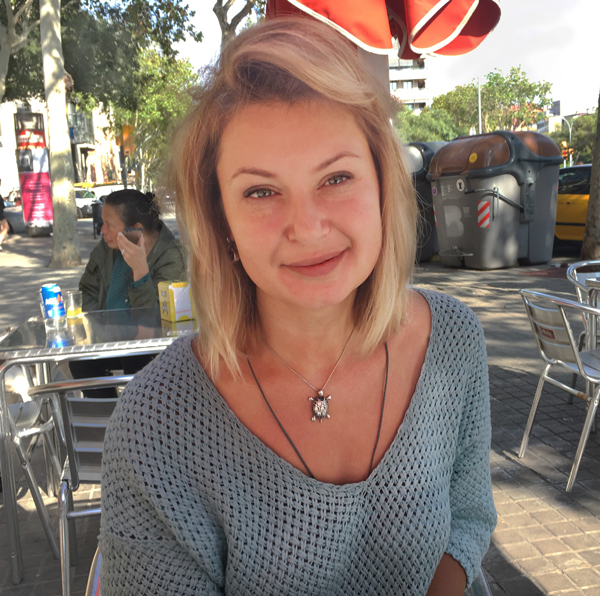 Barcelona welcomes northern European students with open arms and sometimes a bit of envy.Calle Mallorca, Barcelona – The students from the north are tall and fair and have light-colored eyes. They’re friendly and make connections quickly.
Barcelona welcomes northern European students with open arms and sometimes a bit of envy.Calle Mallorca, Barcelona – The students from the north are tall and fair and have light-colored eyes. They’re friendly and make connections quickly.
Olga and I met on a morning break at a tiny place named Cafe Castroverde next to our school. Based on the easy way she carried herself, I assumed she was another happy fugitive using Spanish classes as an excuse to spend a few seasons on the Mediterranean.
So much for stereotypes.
The woman is a neurologist with a practice in Moscow. She explained that she combines acupuncture with conventional medicine.
Olga is in Spain thanks to the ultra-prestigious Médico Interno Residente program built around cutting-edge medical research. She’s juggling that with her intensive Spanish curriculum.
Healthcare is a right in Russia. Services at state-financed hospitals and out-patient clinics are available to everyone. Olga’s medical training was financed with public funding.
The care itself is of extremely high quality, she said, but time spent in waiting rooms can be frustrating. People often choose additional private care.
Dr. Kokina works 49 hours a week and is on call every four days. She lives in the suburbs of Moscow where she has commutes by car as long as two-hours each way. Facing lower pay and the stress of seeing more patients, she could be describing a physician’s fate in the big cities of our country.
Given the 2-hour time lag between Moscow and Barcelona, I asked if her son might be out on the school playground while she was ordering coffee.
She laughed. Her Nikita, she said, happens to be a university student.![]()
